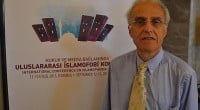Hizmetophobia: A by-product of the Turkish Muslim Spring

Date posted: May 19, 2011
ALİ H. ASLAN
The US Commission on International Religious Freedom (USCIRF) recently issued its latest annual report with an embarrassingly long Turkey section. In addition to the problems of minority non-Muslims and Alevis, the commission has also alluded to those of majority Sunni Muslims in Turkey. But a useful term that would describe the main reason for their suffering was missing: Islamophobia.
Islamophobia has been in the veins of the post-Ottoman Turkish republican regime since it was established in 1923. Many founders of the Republic of Turkey were secularist-positivists who held deep reservations about the institution of religion, especially organized Islam. Hence, they employed immense pressure (open and covert) to cleanse religion from public and even private life in this majority Muslim nation. Centuries-old Islamic missions were banned. At one point, teaching the Muslim holy book the Qur’an was illegal. Religious lifestyles often resulted in job and promotion denial, or even expulsion, in some key government institutions, such as the military.
For decades, Turkey’s secularist establishment has used religious Muslims and movements as a bogeyman. Generals have staged several coups in the name of protecting their highly sacred secularism from an inflated fundamentalism threat. Luckily, despite such systemic repression, pious Muslims have generally not turned to violence or fundamentalism, thanks to the maturity of Turkish Sufi Islamic tradition. Instead, they have pursued a struggle for rights and freedoms by pushing for democratization. Becoming more transparent and helping with the nation’s transformation simultaneously, they have integrated into an increasingly democratic system.
Unlike the so-called Arab Spring, the Turkish Spring, largely to the credit of religious conservatives, was brought about via a long, painstaking and peaceful process of reform rather than chaotic and bloody revolutions. Although it’s still a work in progress, Turkey has come a long way in becoming both modern and Muslim. As a result of democratic corrections, the once underdog religious elements are now less and less underrepresented in the public and private arenas. The Justice and Development Party (AK Party) as a political party and Hizmet (aka the Fethullah Gülen movement) as a civic movement are two leading examples.
Obviously, pro-status quo elements within the Turkish establishment do not take these developments well. Their fear of Islam has been reinforced by the fear of change in their privileged status. They claim Turkey is heading towards an autocratic theocracy, even though the country has become a demonstrative case for the cohabitation of Islam and democracy. At the epicenter of the Islamophobic hullabaloo lately is the Hizmet (which means “service” in Turkish) movement.
Hizmet sympathizers operate in Turkey and all over the globe with their schools, businesses, community services, etc. They stress scientific progress, the fight against poverty and disease and promote interfaith and intercultural dialogue. The world definitely needs more such activities, but some people seem to hate the movement no matter what. The anti-Hizmet conspiracy theories are abundant, reminiscent of anti-Semitic rhetoric: “Gülenists” have “infiltrated” every important corner, they secretly took over Turkey and seek eventual world domination in the name of Islam.
Fortunately, in response to decades-long authoritarian practices, Hizmet people have developed survival techniques against carnivorous witch-hunts. For example, they keep a low profile in important government institutions. That further annoys and frightens Islamophobic Turks who now visualize an invisible Hizmet hand behind every development in Turkey that they dislike. And lately they have been increasingly finding allies in the West as well.
It is understandable that Hizmet is undergoing more scrutiny, given its enhanced influence at home and abroad. No human enterprise is immune from mistakes, so any constructive criticism is more than welcome. What’s troubling, however, is people looking at this important movement through lenses usually blurred with negative prejudices related to the movement’s religious roots.
So far, many actions against Hizmet have been taken under the considerable influence of Islamophobia. The USCIRF report points to recent Turkish military plans that allegedly involve secretly planting weapons in the houses of college students who sympathize with Hizmet so that they could label the movement as terrorist. In the US, anti-Hizmet groups engage in smear campaigns (mostly through websites) targeting schools established by sympathizers of the movement. A recent worrying development has been concerted efforts in Turkey and the West to portray Hizmet overall as a major obstacle to press freedom.
The arrest of former police official Hanefi Avci and journalist Ahmet Şık in conjunction with two separate anti-terror cases prompted the following conspiracy theory: All this happened because Hizmet sympathizers in the state apparatus wanted to hush their critics. The theory fails to explain why scores of others who also harshly criticize the movement are untouched, not to mention the hundreds of continuing prosecutorial actions against Hizmet-friendly journalists and intellectuals. Clearly, most lapses in freedom in Turkey stem from the less-than-perfect Constitution and laws, an archaic judicial system and a fading, but still alive, national-security state culture. However, a small but influential chorus insists on blaming “Hizmet” for almost all of the ills and democratic shortcomings in the country. They seem to ignore the huge contributions of the movement to reform.
I don’t expect rational thinking from Turkey’s narrow-minded secularists and fanatic ultranationalists. However, seeing a similarly paranoid attitude lately even among some relatively open-minded liberal intellectuals has been heartbreaking and disappointing. I suspect concerns about preserving a secular lifestyle in an increasingly religion-friendly nation have made some liberals more susceptible to the Islamophobia virus.
Nowadays several Western media organizations, probably under the Turkish liberal-secularist influence, are joining the Hizmet-skeptical chorus. Along with the Şık and Avci cases, Today’s Zaman parting ways with columnist Andrew Finkel has been presented as evidence of Hizmet’s intolerance for free speech. Does anybody ask the consent of millions of Hizmet sympathizers when such decisions are taken? No. (I know for a fact, because if I had been asked, I would have said “no” to Finkel’s firing.) How, then, could an increasingly decentralized civic movement such as Hizmet be held as a whole responsible for the perceived mistakes of its individual sympathizers or their autonomously run — that is, not run by Hizmet — institutions?
Hizmetophobia, as a version of Islamophobia, is wrong. I call on all Hizmet critics in Turkey and abroad to refrain altogether from negatively stereotyping a widespread civic movement without presenting credible evidence other than conspiracy theories, gossip and personal fears. Instead, genuine efforts must be made to analyze this crucial movement with an open mind. That would provide valuable advice and constructive criticism for Hizmet as well as lessons for the larger Muslim Spring.
Source: Today's Zaman , 19 May 2011, Thursday
Tags: Defamation of Hizmet |
























